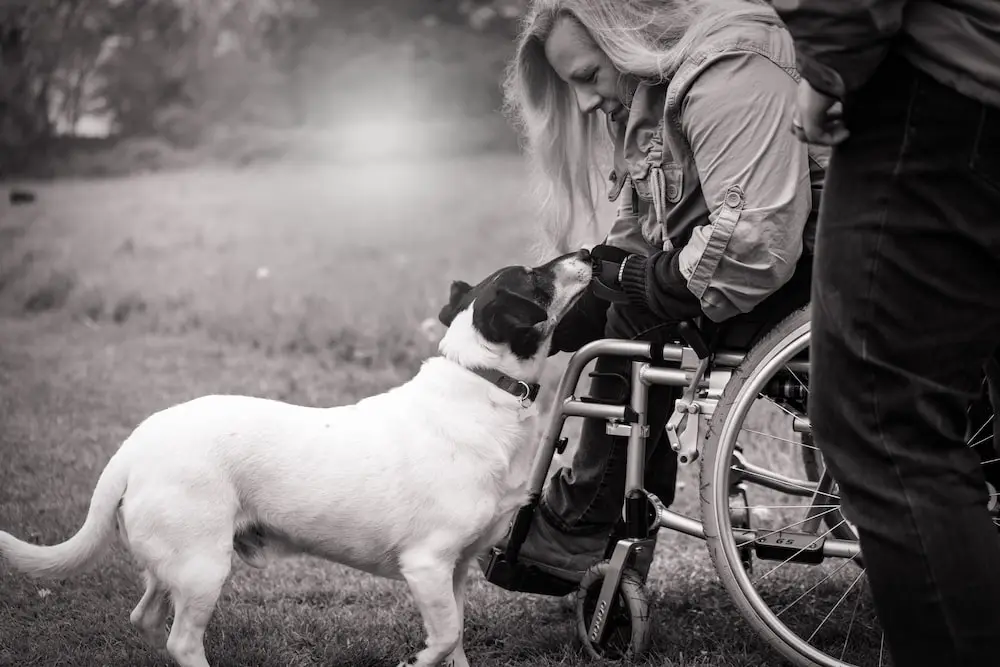Introduction to the role of dogs in human health and well-being
Dogs have been our companions for thousands of years, and their role in our lives goes beyond mere companionship. Research has shown that owning a dog can have a profound impact on our physical, mental, and social well-being. In this article, we will explore the various ways in which dogs contribute to our health and well-being, from providing physical exercise to reducing stress and anxiety. So, whether you’re a dog lover or simply curious about the benefits of having a furry friend, read on to discover the incredible role dogs play in enhancing our lives.
The physical health benefits of owning a dog
One of the most obvious ways in which dogs contribute to our health is through physical exercise. Owning a dog means having a constant companion who needs to be walked and played with regularly. This not only encourages us to be more active but also provides us with the motivation to maintain a consistent exercise routine. Studies have shown that dog owners tend to have lower blood pressure, cholesterol levels, and a reduced risk of heart disease compared to those who do not own a dog. Additionally, the act of walking a dog can help improve our cardiovascular health and strengthen our muscles and bones.
Furthermore, dogs can also act as a catalyst for social interaction. When we take our dogs for walks in the park or around the neighborhood, we often encounter other dog owners, leading to increased opportunities for socializing and forming new friendships. This social aspect of dog ownership can have a positive impact on our mental and emotional well-being, as it provides a sense of community and belonging.
The mental health benefits of owning a dog
In addition to the physical benefits, owning a dog can also have significant mental health benefits. Dogs are known to provide unconditional love and companionship, which can help alleviate feelings of loneliness, depression, and anxiety. Simply petting or cuddling with a dog has been shown to increase the levels of oxytocin, a hormone associated with bonding and relaxation, in our bodies. This can help reduce stress and promote a sense of calm and well-being.
Moreover, dogs have a unique ability to sense our emotions and provide comfort when we are feeling down. They can be a source of emotional support, offering a listening ear and a non-judgmental presence. This can be particularly beneficial for individuals struggling with mental health issues or going through difficult times in their lives. Many people find solace in confiding in their dogs, as they provide a safe and non-threatening outlet for expressing emotions.
How Dogs Can Improve Social Well-being
As mentioned earlier, owning a dog can enhance our social well-being by facilitating social interaction and fostering a sense of community. Dogs act as social lubricants, making it easier for us to initiate conversations with strangers and form connections with others. Whether it’s at the dog park, during obedience classes, or while taking our furry friends for a stroll, dogs provide a common ground for interaction and create opportunities for social engagement.
Furthermore, dogs can also play a crucial role in helping individuals with social anxiety or other social difficulties. The presence of a dog can provide a sense of security and comfort, making social situations less intimidating. This can gradually help individuals overcome their fears and develop better social skills. In this way, dogs can act as valuable companions for those who struggle with social interactions, providing them with a sense of support and encouragement.
Dogs as therapy and emotional support animals
In recent years, there has been a growing recognition of the therapeutic benefits of dogs in various settings. Dogs are now widely used as therapy animals in hospitals, nursing homes, schools, and rehabilitation centers. Their presence has been shown to have a positive impact on patients’ well-being, reducing stress, improving mood, and even speeding up recovery processes.
Moreover, dogs can also be trained as emotional support animals (ESAs) to provide comfort and stability for individuals with mental health conditions. ESAs are prescribed by healthcare professionals and can accompany their owners in various settings where emotional support is needed. The presence of an ESA can help reduce anxiety, provide a sense of security, and offer emotional grounding for individuals dealing with conditions such as post-traumatic stress disorder (PTSD), depression, or anxiety disorders.
The role of dogs in reducing stress and anxiety
Stress and anxiety are prevalent issues in today’s fast-paced world, and dogs can play a significant role in helping us manage these conditions. Studies have shown that interacting with dogs can lower cortisol levels, a hormone associated with stress, and increase the production of serotonin and dopamine, neurotransmitters that promote feelings of happiness and relaxation.
Simply spending time with a dog can have a calming effect on our nervous system, helping to reduce anxiety and promote a state of relaxation. Whether it’s stroking their fur, playing fetch, or simply being in their presence, dogs have a soothing effect that can provide a much-needed respite from the pressures of everyday life. For individuals with anxiety disorders, having a dog as a constant companion can offer a sense of security and reassurance, making it easier to navigate through challenging situations.
Dogs and children’s development and well-being
The benefits of dogs extend beyond adult owners, as they can also have a positive impact on children’s development and well-being. Research has shown that growing up with a dog can help children develop empathy, compassion, and responsibility. Taking care of a dog teaches children the importance of nurturing and being responsible for another living being, fostering a sense of empathy and kindness.
Furthermore, dogs can also act as a source of emotional support for children, especially those facing challenging circumstances or dealing with trauma. The presence of a dog can provide a sense of stability and comfort, helping children feel safe and secure. Additionally, interacting with dogs can help children with autism spectrum disorders improve their social skills and develop better communication abilities.
Dogs and the elderly: companionship and improved quality of life
As we age, loneliness and isolation can become significant challenges, impacting our overall well-being. However, owning a dog can be a powerful antidote to these feelings of loneliness. Dogs provide companionship and unconditional love, offering a sense of purpose and meaning in our lives. They can also encourage older adults to stay active and engage in regular physical exercise, which is essential for maintaining good health and preventing age-related conditions.
Moreover, the presence of a dog can help alleviate symptoms of depression and anxiety in the elderly. The routine and responsibility of caring for a dog can provide a sense of structure and purpose, reducing feelings of emptiness and providing a sense of fulfillment. Interacting with a dog can also release endorphins, which are natural mood enhancers, helping older adults maintain a positive outlook on life.
Service dogs and their impact on individuals with disabilities
Service dogs are specially trained to assist individuals with disabilities, providing them with increased independence, mobility, and support. These highly trained dogs can perform a wide range of tasks, including guiding individuals with visual impairments, alerting individuals with hearing impairments to important sounds, and assisting individuals with mobility limitations in their daily activities.
The impact of service dogs on the lives of individuals with disabilities is immeasurable. These dogs not only provide practical assistance but also offer emotional support and companionship. Many individuals with disabilities report that their service dogs have significantly improved their quality of life, enabling them to engage in activities they may not have been able to do otherwise. Service dogs are true heroes, empowering individuals with disabilities to live more fulfilling and independent lives.
Conclusion: the enduring bond between dogs and humans
In conclusion, dogs play a vital role in our health and well-being. They provide us with physical exercise, emotional support, and companionship, helping to improve our physical, mental, and social well-being. Whether it’s reducing stress and anxiety, enhancing social interactions, or aiding individuals with disabilities, dogs have an incredible ability to positively impact our lives.
So, the next time you see a dog wagging its tail or eagerly waiting for a walk, remember the profound role they play in enhancing our health and well-being. Consider opening your heart and home to a furry friend, and experience the extraordinary bond that can be formed between humans and dogs.




3 thoughts on “The Role of Dogs in Human Health and Well-being”